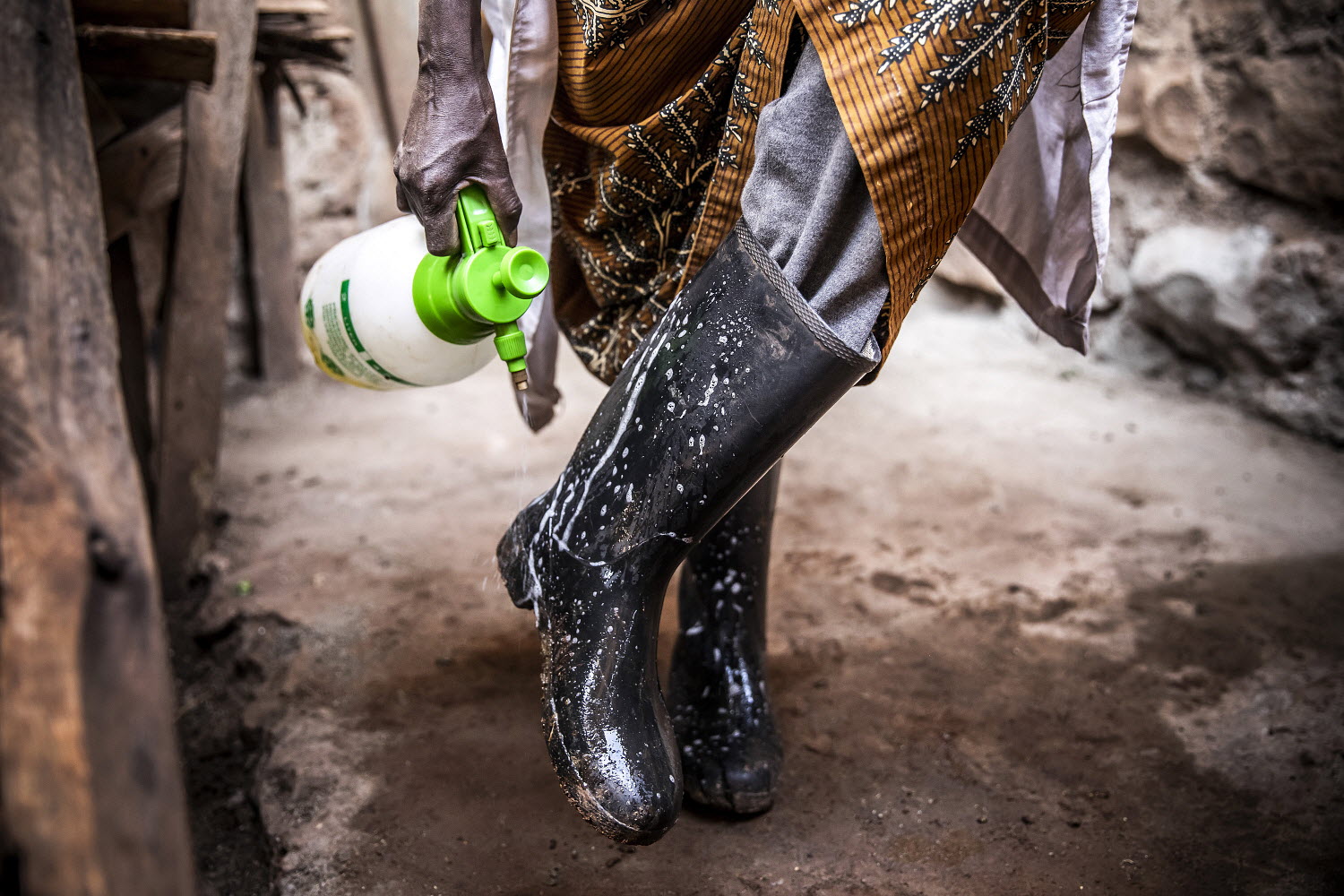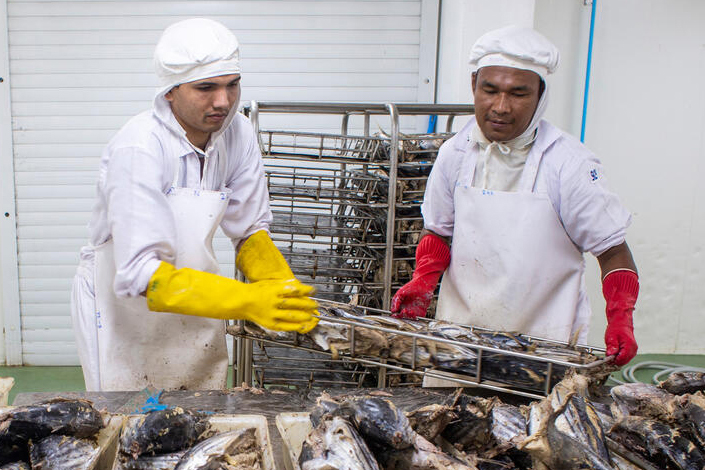Farmer field schools: Advancing One Health by reducing antimicrobial use and boosting farm profits in Tanzania
Farmer field schools are being piloted as innovative interventions to generate high-quality, farm-level data on antimicrobial use, antimicrobial resistance (AMR), and production economics. The initiative aims to evaluate whether the adoption of recommended practices, particularly improved biosecurity, can simultaneously reduce the drivers of AMR and enhance farm profitability.
In Tanzania, FAO has piloted farmer field schools in Arusha, Morogoro, and Dar es Salaam. At the start, FAO provided all essential inputs, including day-old chicks, feed, feeders, drinkers, disinfectants, personal protective equipment, and sprayers, to support effective implementation in each location.
Each farmer field school has run for six consecutive months since September 2024, covering three production cycles of five weeks each, with two-week intervals in between. In line with the harmonized approach used across all seven project countries, three production cycles mark the maximum duration for piloting. Graduation ceremonies began in March 2025 to mark the conclusion of each school.
The pilot results have been promising. Participating farmers significantly improved biosecurity practices and adhered to vaccination schedules - key strategies to limit antimicrobial use in broiler production. At the end of each production cycle, farmers successfully sold all broilers, which were reported to have better meat quality and higher weights. Chicks raised through the farmer field schools reached an average of 2.5 kg, compared to under 1.5 kg for similar-aged broilers raised outside the programme.
The farmer field school pilot has proven to be a transformative model, empowering farmers with practical knowledge that strengthens animal health, reduces reliance on antimicrobials, and improves profitability.
Find out more

In depth
Antimicrobial resistance
Antimicrobial resistance (AMR) is a major global threat of increasing concern to human and animal health.

In depth
Biosecurity
One Health and biosecurity converge as a common path leading to improved biological risk management across agrifood systems.

In depth
What is One Health?
One Health is an integrated, unifying approach that aims to sustainably balance and optimize the health of people, animals and ecosystems.
